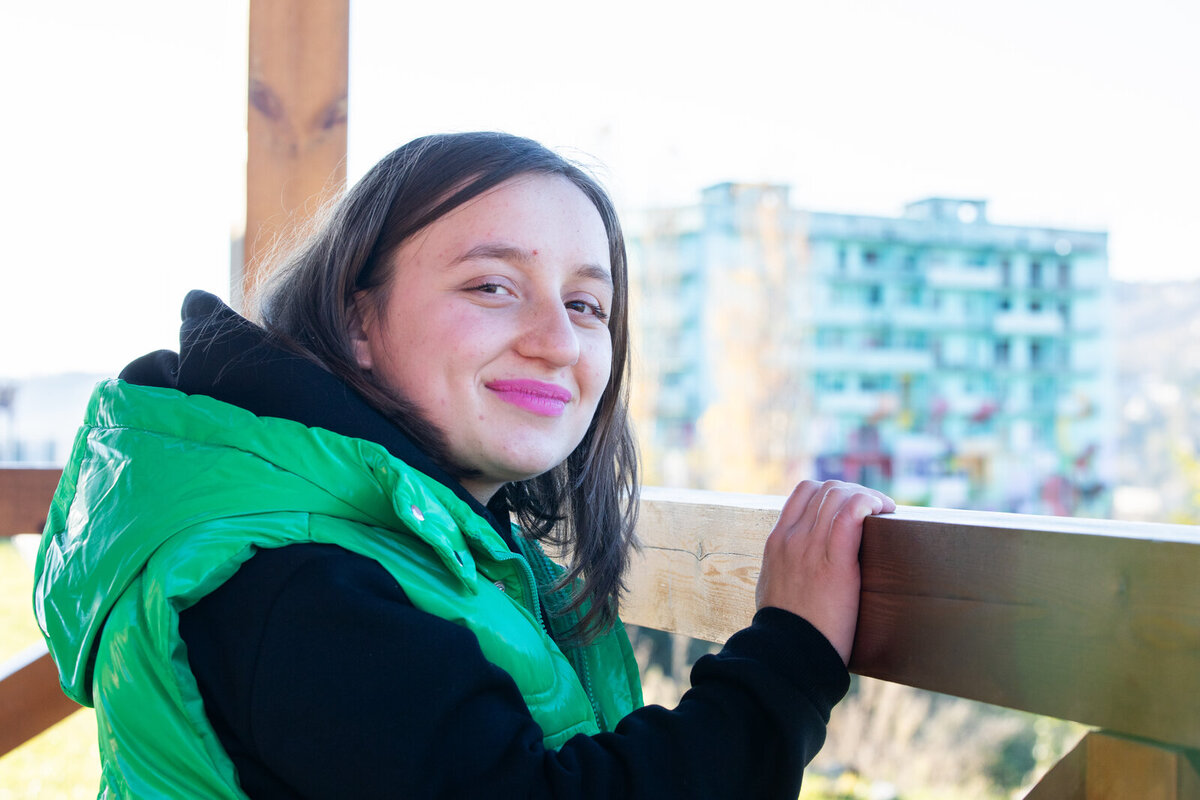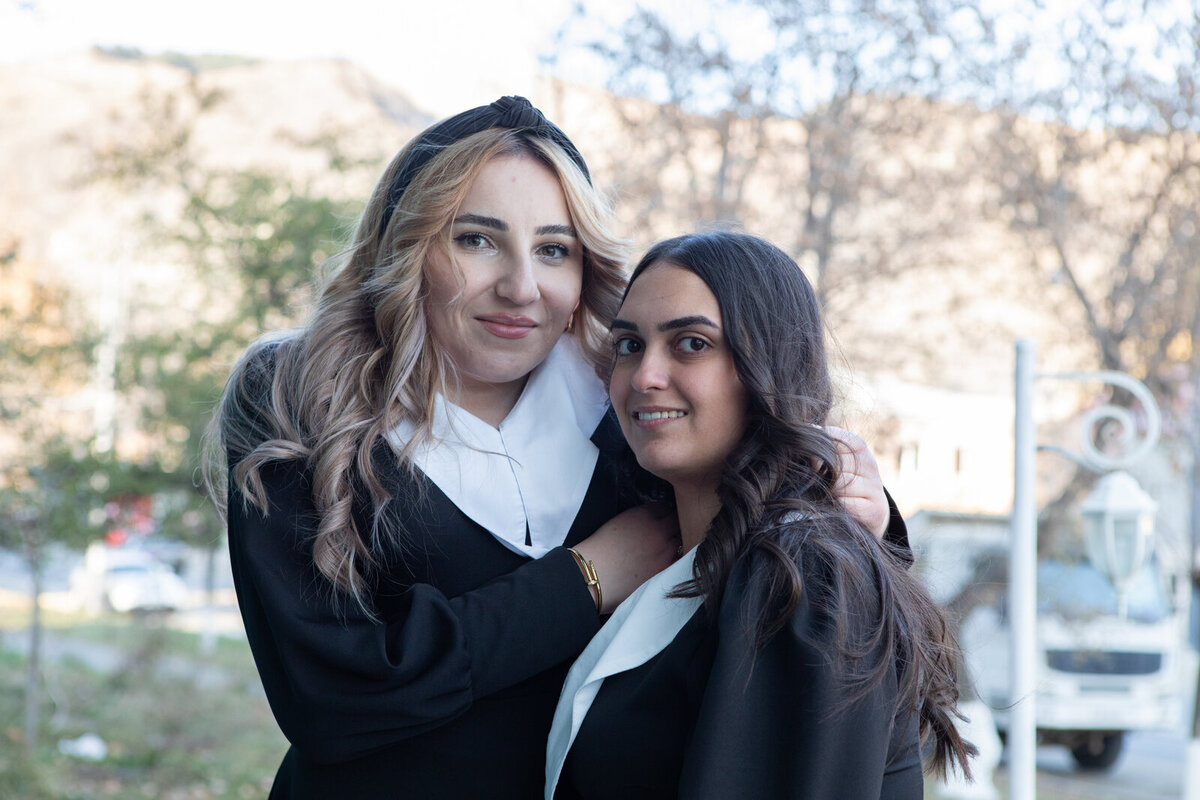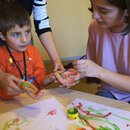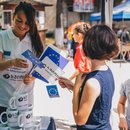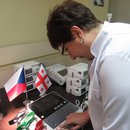In Georgia and Armenia, people with special requirements face many daily challenges. Unfortunately, they still face stigma, which affects many areas of their lives. Access to education and work remains difficult for such people, along with many other obstacles.
Digital profession for an independent living
Tinatin Neparidze, or Tina, is from the city of Chiatura in Georgia. Tina is passionate about web development and is actively learning English while mastering her skills in the field. She also enjoys chess and swimming. Despite leading an active life, the lack of an accessible environment in her city creates many challenges for her:
“As a person with special requirements, I encounter many problems in the city. For example, there are no stair handrails, elevators are rare, and no zebra crossings.”
Tina grew up in Chiatura, and because of her special requirements, she attended the Chiatura Special Educational Needs School. She recalls this period fondly, saying it was a turning point in her life. After completing the ninth grade, she moved to Tbilisi to study web development at a vocational school.
She believes a digital profession is the best way forward for her, as Chiatura is not well-adapted for people with special requirements. Moving around the city is often tricky, so Tina sees digital professions as a solution. These careers offer the opportunity to work from home, high salaries, and the chance to work for international companies.
In the fall of 2024, Tina attended training funded by the European Union, where she learned new skills in web development, digital marketing, and social media management. Tina says the knowledge she gained is essential to her future, and she sees herself as a developer:
“In the future, I see myself as a developer. In this profession, I can work with foreign companies and, most importantly, work from home. This will allow me to live independently and achieve my goals.”
Hasmik and Ofelya: sharing knowledge and empowering others
Hasmik Mkhitaryan and Ofelya Virabyan live in Armenia's Lori region. They are friends and work for "EREO — Equal Rights, Equal Opportunities," an organisation that has protected the rights of people with special requirements since 2014. EREO also runs an independent resource center that provides various services, including peer support, mentoring, information sharing, and advocacy. The center also operates a social enterprise where young people with special requirements make handmade products, including dolls and wooden crafts.
Hasmik and Ofelya submitted project proposals as part of an EU-supported initiative and received a grant to carry out their projects. As part of Hasmik's project, 30 young people received 14 training sessions on digital skills. In Ofelya's project, four online career planning workshops were held. These projects were particularly valuable for young people with special requirements living in the Lori region and those who are unemployed or not involved in any training programs.
“We held online and in-person training sessions and identified local digital companies where the participants could find employment. We are planning to organise a round table with these companies and the training participants so they can meet and discuss potential job opportunities. There are some projects you have to work on, and this was one of those projects we worked on with great joy and passion,” says Hasmik Mkhitaryan.
The training sessions were attended by people with special requirements, young people who were neither in school nor employed, and internally displaced persons from Nagorno-Karabakh.
Ofelya says this project was significant for her because it helped her and Hasmik develop their skills while supporting others. It also helped challenge stereotypes and change people's attitudes.
“I remember the first meeting was tense, and the young people hesitated. But after several sessions, they began to open up. I’m happy we achieved our goal and, most importantly, made new friends. I believe these friendships will last a long time,” says Ofelya Virabyan.
The EU-funded project "Enhancing Digital and Career Management Competencies for Vulnerable Youth in Georgia, Armenia, and Moldova" is implemented by Caritas Czech Republic in Georgia. The project partners are the Coaliation for Independent Living, Moldovan organisation Millennium and the Armenian organisation Agate.
This article was created with the assistance of the European Union. Its contents are the sole responsibility of Caritas Czech Republic and do not necessarily reflect the views of the European Union.


